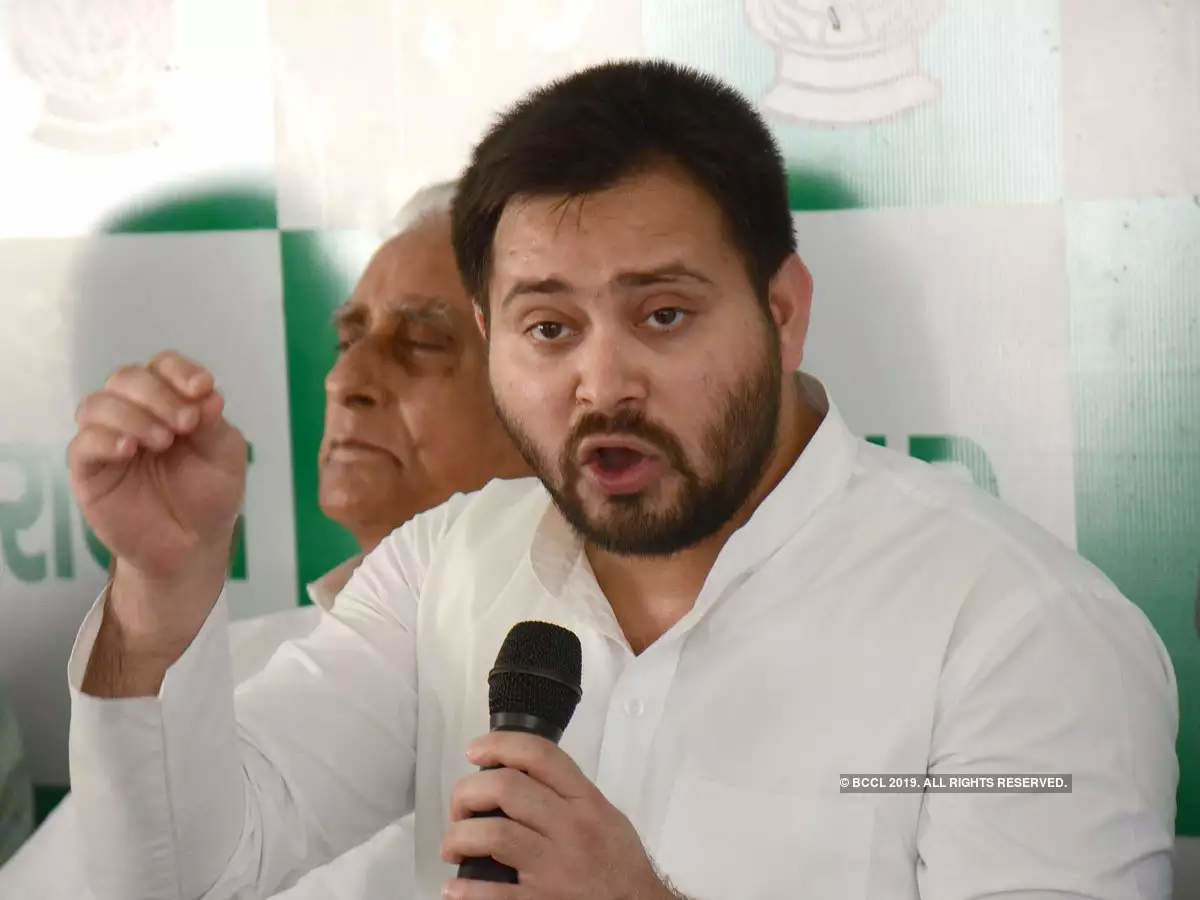Source: indiatoday.in
When results of an election are announced, they decide two important roles–who will govern and who will be in the opposition to keep a check on what the new government does. For maintaining a polity’s democratic health, the second role is somewhat more important than the first.
This is because governments exist even in non-democratic regimes. But it is the presence of a responsible opposition that makes a robust democracy distinct. How effectively the Opposition is able to conduct itself, in many ways determines how cautious, sensitive and responsible the government will be while taking policy decisions and responding to unforeseen emergencies.
These are basics taught in social science classes at the senior secondary level and not necessarily part of a grand theory or sophisticated sacred knowledge.
But when it comes to the political spectrum of Bihar, the Leader of Opposition, Tejashwi Yadav, appears to have conscientiously chosen to be oblivious about this.
Bihar is currently witnessing its worst medical emergencies in recent times with more than 110 children dead due to encephalitis in Muzaffarpur district alone. The epidemic has exposed glaring faultlines in the public heath infrastructure of Bihar–be it availability of doctors, hospital infrastructure, nutrition level (which is worse than most African countries), among others.
These are exactly the times when people look up to their leaders (both in the ruling government and the Opposition) to stand with and for them to brave the calamity. Political ideologies, colours and partisan interests ought to diffuse in the face of such widespread human sufferings.
But what has been Tejashwi Yadav’s response to the Muzaffarpur tragedy? Two words can describe it: Silence and absence. This is not only unprecedented but also unbecoming and uncharacteristic.
Ever since the encephalitis outbreak hit Bihar, Tejashwi Yadav, the Leader of Opposition in Bihar assembly who is also the de-facto head of the single largest party in the state–Rashtriya Janata Dal (RJD)–has been silent.
Not only is he yet to utter a single word, not many, even within his own party, seem to be even aware of his whereabouts. Senior RJD have been clueless when asked where their leader is. Some said he might be in the United Kingdom to watch the Cricket World Cup.
Is Tejashwi Yadav on a holiday? Is he unwell? Is he under a spell of unending introspection? How does he and his party plan to help the state overcome tragedies like the one in Muzaffarpur? He is a public figure, the Leader of Opposition in an honourable state assembly. The people have every right to know his whereabouts and where he stands in these dark hours.
This is the same Tejashwi Yadav who two months ago would not miss even a minuscule opportunity to hit out at the NDA governments at the state and national level; the same Tejashwi Yadav who on May 17 (the last day for campaigning for Lok Sabha polls) took a jibe at Nitish Kumar, daring him to at least release his party manifesto on the last day; the same Tejashwi Yadav would be active on Twitter to share visuals from his rallies and regularly question the government and launch scathing attacks on it throughout the polls.
But all this was during the election seasona season when promises are served like hot pakodas; when people’s dreams are colonised by political colours of all hues in the buzzing atmosphere characterised by one-upmanship.
Now with the poll season is over, have things suddenly changed for Tejashwi Yadavthe politician whose Facebook cover image screams the words “Pratham pratigya, Pratham pyar, sukhi samridh sarvottam Bihar (My first pledge and first love is to see a happy and prosperous Bihar)”.
Is the strength of his pledge and love so weak that it could be rattled by a humiliating electoral defeat?
No doubt that when results of the 2019 Lok Sabha elections were declared on May 23, they came as a nightmare for Tejashwi Yadav and the Rashtriya Janata Dal (RJD).
The party founded and nurtured by Tejashwi’s father Lalu Yadav, who is in jail, was routed and failed to win any of the 40 Lok Sabha seats in Bihar. This was its worst performance and came despite an aggressive posturing, and an even more aggressive campaign led by Tejashwi Yadav against Bihar Chief Minister Nitish Kumar and Prime Minister Narendra Modi.
But Tejashwi should have known that defeat is also a time that tests your character and leadership. It is easy to be a leader in victory because the tide is in your favour. But it takes political and moral courage to accept defeat, work for the future, and shoulder one’s responsibility as an opposition leader.
If silence and complete absence from public life is the kind of leadership that Tejashwi Yadav had to offer the people of Bihar in times of a catastrophe like the one in Muzaffarpur, it is for good that most people in the state chose to vote against his party in the Lok Sabha elections.
Defeat, just like victory, is part of a political journey. If a de-facto party president and Leader of Opposition cannot see beyond the humiliating results of a general election, it is better that the people chose not to repose faith in his leadership. One wonders if Tejashwi Yadav is naive to understand the basics that a political party’s socio-political responsibilities do not cease to exist in the post-election season.
Being a responsible opposition leader does not mean that he necessarily has to militate against the ruling government at all cost. In times of crisis, maturity commands that the opposition and the government work as a unit and support each other to tackle the situation.
But for this, our politicians need to look beyond the optics of electoral politics. And this is where Tejashwi Yadav has failed miserably.
He may be a popular politician in Bihar, but the larger question is: Is he a leader?

